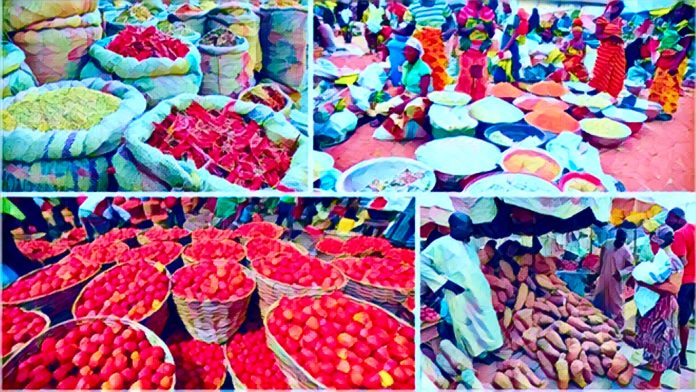KEY POINTS
- Nigeria’s inflation grew to a 34.6 percent in November 2024 from 33.88 percent in October 2024.
- With 39.93 percent of food inflation, prices of rice, fish, yam flour and milk rose.
- Fuel subsidies and the devaluation of the naira blamed for inflation surge.
Nigeria’s inflation rate in November 2024 spiked to 34.60 percent from the 33.88 percent recorded in October 2024, Nigeria’s National Bureau of Statistics (NBS) said in its Consumer Price Index (CPI) report.
Inflation rises 0.72 percent largely due to food prices that are still on the up swing and the prolonged effect of subsidy removal and currency depreciation.
Data from the NBS report further showed that the year-on-year inflation rate rose by 6.40 percent points percent , to 34.60 percent in November 2024, from 28.20 percent in November 2023.
In November 2024, food inflation rate also increased by 39.93 percent , 7.08 percent point increase from previous month recorded 32.84 percent in November 2023.
In the 2.94 percent in October 2024 to 2.98 percent in November 2024 monthly fashion, food inflation continues to put strain on household expenses.
Why are food prices skyrocketing?
The rising cost of essentials food items, which is attributed to cause increase in food inflation. The NBS report cited price hikes for basic items like:
– Seafood: Dried Mudfish, dried catfish (dried), sardine, other dried fish
– Grains: Millet, yam flour, corn flour, rice
– Proteins: Powdered milk and fresh milk, dried beef, goat meat, frozen chicken and eggs.
Nigeria’s worst cost of living crisis since independence has been blamed on food inflation. A sharp increase in transport and production costs, food prices, occurred following the removal of fuel subsidies and the floating of the naira in May 2023 under the current President Bola Tinubu administration.
In part of Nigeria, petrol prices jumped from N200 per lit to over N1,100, while the naira slid from N700/US$ to N1,600/US$, hugely inflating the cost of imports.
Influence of global policies, and the influence of economic policies
The World Bank and International Monetary Fund (IMF) had called for the removal of energy subsidies and the floating of the naira in the past, alleging the policies will stabilize Nigeria’s economy.
But the fallout was a cost of living crisis made all the worse by currency devaluation and inflation spiralling out of control.
Nigeria has been reeling since May 2023 from the impact of fuel subsidy removal that nearly quadrupled petrol prices and plunging naira in the foreign exchange market.
This has forced up the cost of transportation, of production, of logistics, and these costs are all reflected in the price of essential services and goods.
One of the most painful areas is food inflation which 39.93 percent, many households grappled with higher cost of essential foodstuffs. Nigeria has also felt the burden of the removal of subsidies, which has worsened an already creaking economy, leading businesses to raise prices to absorb higher operating costs.



